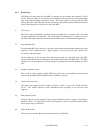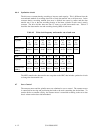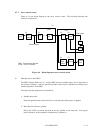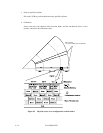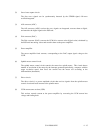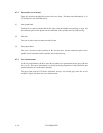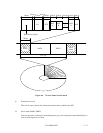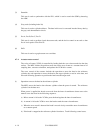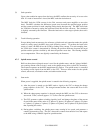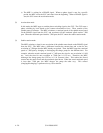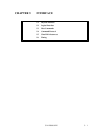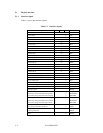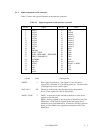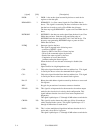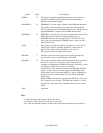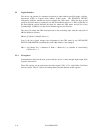C141-E090-01EN 4 - 19
(2) Seek operation
Upon a data read/write request from the host, the MPU confirms the necessity of access to the
disk. If a read or instruction is issued, the MPU seeks the desired track.
The MPU feeds the VCM current via the D/A converter and power amplifier to move the
head. The MPU calculates the difference (speed error) between the specified target position
and the current position for each sampling timing during head moving. The MPU then feeds
the VCM drive current by setting the calculated result into the D/A converter. The calculation
is digitally executed by the firmware. When the head arrives at the target cylinder, the track is
followed.
(3) Track following operation
Except during head movement to the reference cylinder and seek operation under the spindle
rotates in steady speed, the MPU does track following control. To position the head at the
center of a track, the DSP drives the VCM by feeding micro current. For each sampling time,
the VCM drive current is determined by filtering the position difference between the target
position and the position clarified by the detected position sense data. The filtering includes
servo compensation. These are digitally controlled by the firmware.
4.7.5 Spindle motor control
Hall-less three-phase eight-pole motor is used for the spindle motor, and the 3-phase full/half-
wave analog current control circuit is used as the spindle motor driver (called SVC hereafter).
The firmware operates on the MPU manufactured by Fujitsu. The spindle motor is controlled
by sending several signals from the MPU to the SVC. There are three modes for the spindle
control; start mode, acceleration mode, and stable rotation mode.
(1) Start mode
When power is supplied, the spindle motor is started in the following sequence:
a) After the power is turned on, the MPU sends a signal to the SVC to charge the change
pump capacitor of the SVC. The charged amount defines the current that flows in the
spindle motor.
b) When the charge pump capacitor is charged enough, the MPU sets the SVC to the motor
start mode. Then, a current (approx. 2.1 A) flows into the spindle motor.
c) The SVC generates a phase switching signal by itself, and changes the phase of the current
flowed in the motor in the order of (V-phase to U-phase), (W-phase to U-phase), (W-phase
to V-phase), (U-phase to V-phase), (U-phase to W-phase), and (V-phase to W-phase) (after
that, repeating this order).
d) During phase switching, the spindle motor starts rotating in low speed, and generates a
counter electromotive force. The SVC detects this counter electromotive force and reports
to the MPU using a PHASE signal for speed detection.



